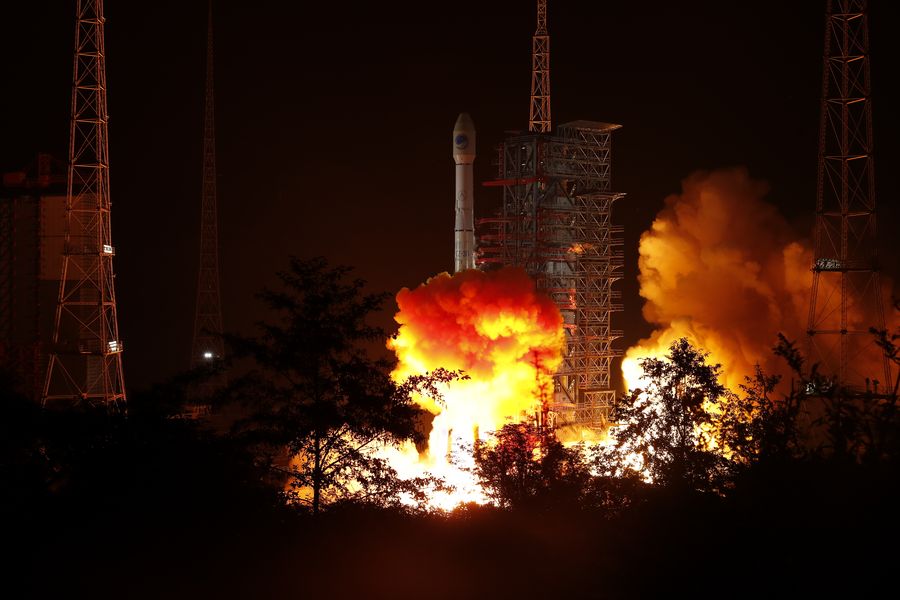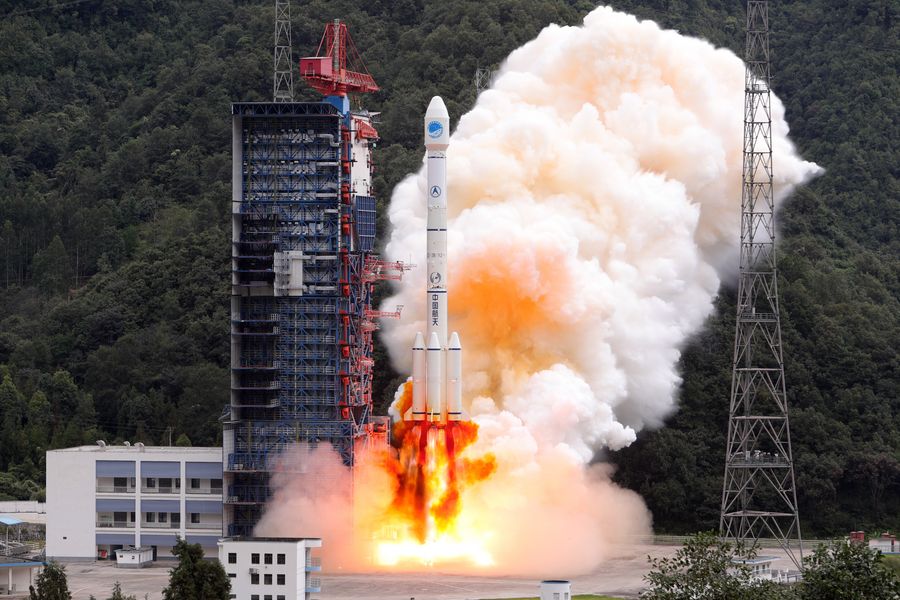
A new satellite of the BeiDou Navigation Satellite System (BDS) is launched from the Xichang Satellite Launch Center in southwest China's Sichuan Province, Nov. 5, 2019. (Photo by Liu Xu/Xinhua)
The BDS system has multiple service capabilities, including satellite-based augmentation, short message communication, ground augmentation as well as international search and rescue.
BEIJING, Dec. 27 (Xinhua) -- China will finish the construction of the BeiDou-3 Navigation Satellite System (BDS-3), with another two geostationary orbit satellites to be launched before June 2020, said BDS Spokesperson Ran Chengqi on Friday.
Friday marks the one-year anniversary of China's BDS-3 system providing global service.
Ran said at a press conference of the State Council Information Office that with the BDS as the core, a more ubiquitous, integrated and intelligent navigation and timing system with comprehensive national positioning is scheduled to be established by 2035.
China sent 10 BDS satellites into space in 2019. The deployment of the core BDS-3 constellation system has been completed with all of the BDS-3 system's medium earth orbit satellites being networked.
With the system's upgraded intelligent operation and maintenance capabilities, the BDS-3 has provided stable and accurate services, boasting a positioning accuracy of better than five meters.
The BDS system has multiple service capabilities, including satellite-based augmentation, short message communication, ground augmentation as well as international search and rescue. It will provide more diversified services with better performance and higher accuracy in 2020, Ran said.
A series of documents on the BDS system were also released to promote the understanding of the system and facilitate its use. The documents were published on the official website of the Beidou Navigation Satellite System.
The BDS system has seen thriving applications in many areas and has fostered an industrial ecosystem, Ran said.
The 22nm process navigation and positioning chip supporting BDS-3's new signal has a smaller volume, lower power consumption and higher accuracy, and has realized large-scale application.

China sends twin BeiDou-3 navigation satellites into space on a Long March-3B carrier rocket from Xichang Satellite Launch Center in Xichang, southwest China's Sichuan Province, Oct. 15, 2018. (Xinhua/Liang Keyan)
The new generation of BDS system-related products including high-precision antennas, boards, and broadband radio frequency chips has been developed.
The BDS system has also seen increasing applications in emerging fields such as the industrial Internet and Internet of Things, as well as autonomous driving, parking and logistics.
With the arrival of the 5G commercial era, BDS is accelerating the integration with new technologies such as the next generation of mobile communication, blockchain and artificial intelligence, Ran said.
The BDS system is playing an important role in many industries including transportation, agriculture, forestry and energy. It supports China's dynamic monitoring system for more than 6.5 million vehicles. It will further facilitate railway transportation, inland river shipping, ocean navigation and the management of transportation infrastructure construction, Ran said.
Ran said China is continuously promoting the development of a legal system for satellite navigation.
China's applications for satellite navigation patents have increased rapidly, and the number has reached 70,000, ranking the first in the world.
More BDS-related national standards and special standards will be released to ensure a sound environment for its industrial application, Ran added. ■



